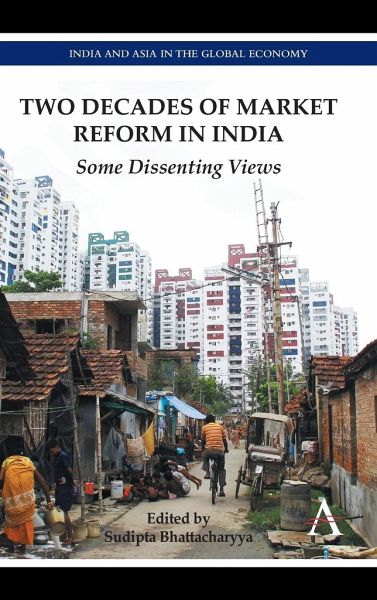
Two Decades of Market Reform in India
Some Dissenting Views
Herausgeber: Bhattacharyya, Sudipta

PAYBACK Punkte
52 °P sammeln!
This edited volume of essays investigates the series of neoliberal policy reforms implemented in India between 1991 and the present day, and assesses the impact this reform agenda has had upon both the Indian economy and the country's population.














